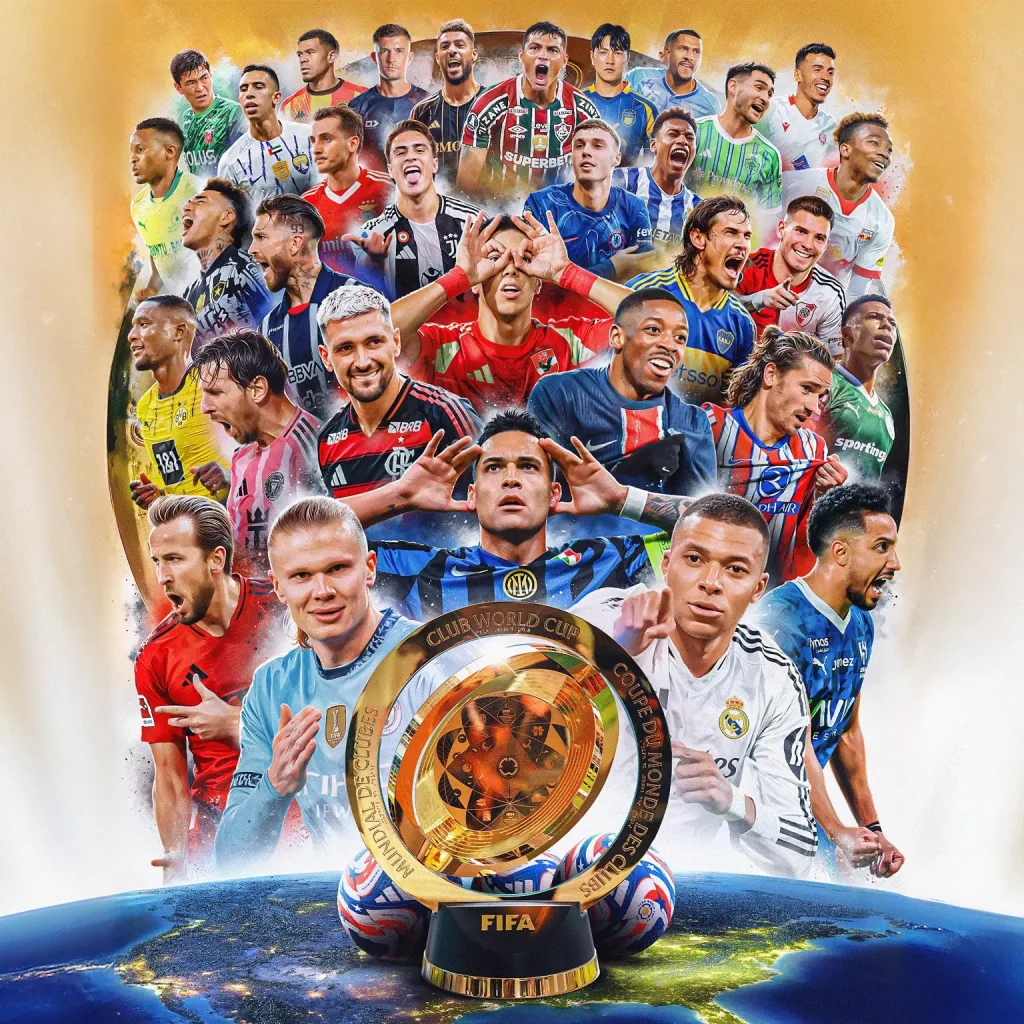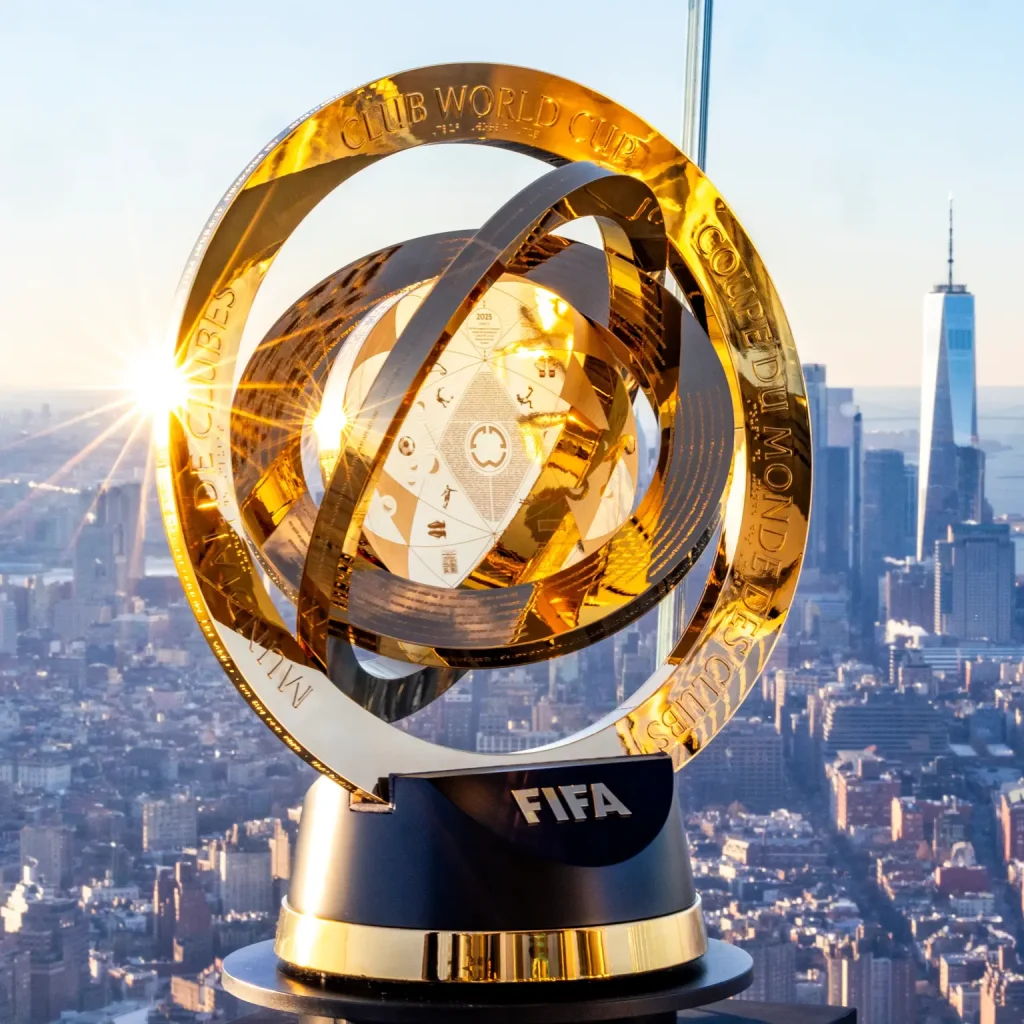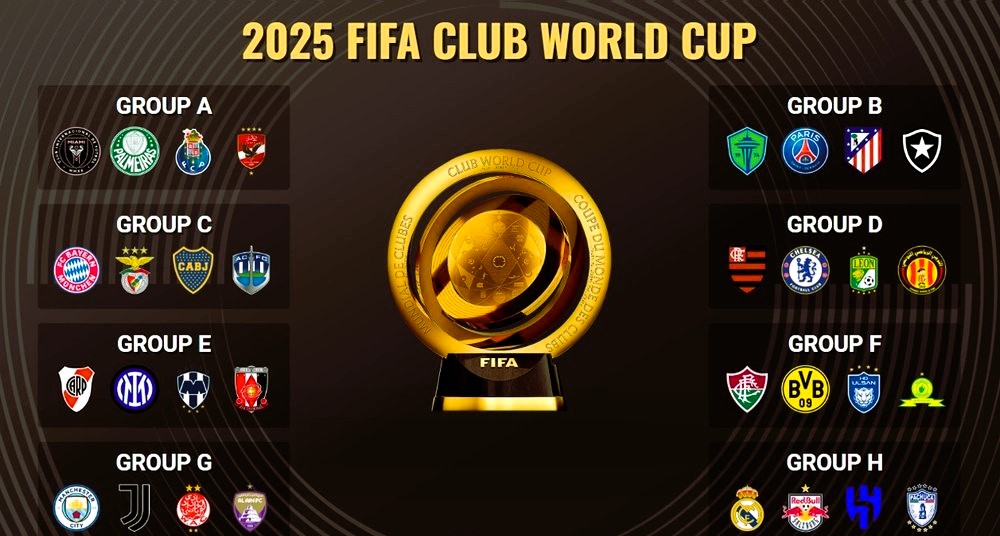Picture this: 32 of the world’s greatest football clubs battling it out across the United States in what’s being hailed as the most ambitious club tournament in football history. The FIFA Club World Cup 2025 isn’t just another competition – it’s a complete transformation of how we experience elite club football, promising to redefine the sport’s landscape forever.
From June 16 to July 14, 2025, football fans worldwide will witness something unprecedented. Gone are the days of the modest seven-team format that many barely noticed. In its place stands a colossal 32-team spectacle that mirrors the FIFA World Cup itself, featuring legendary clubs like Real Madrid, Manchester City, and Inter Miami with Lionel Messi leading the charge.
This comprehensive guide will take you through everything you need to know about this ground-breaking tournament – from its revolutionary format and star-studded participants to the controversies surrounding player welfare and the massive financial implications that could reshape football’s future.

From Humble Beginnings to Global Phenomenon
The FIFA Club World Cup has come a long way since its inception in 2000, when Corinthians claimed the inaugural title by defeating Vasco da Gama in an all-Brazilian final. What started as a replacement for the Intercontinental Cup has evolved through various formats and challenges, including a four-year hiatus from 2001 to 2004 due to financial difficulties.
The tournament’s recent history tells a story of European dominance mixed with surprising upsets. Real Madrid leads the all-time winners list with five titles, while Barcelona has claimed three championships. Manchester City are the current defending champions after their commanding 4-0 victory over Fluminense in 2023.

FIFA Club World Cup 2025 Revolution: Why This Changes Everything
The 2025 edition represents the most significant transformation in the competition’s history. FIFA’s decision to expand from seven to 32 teams and shift from an annual to a four-year cycle mirrors the structure of international tournaments. This change wasn’t just about size – it was about creating a truly global spectacle that could capture the world’s attention.
The qualification process for 2025 was meticulously designed to ensure the world’s best clubs earned their spots. Teams qualified either by winning continental championships between 2021-2024 or through sophisticated ranking systems that measured consistent excellence over four years.
FIFA Club World Cup 2025 Format and Structure
Group Stage Draw
The 32 participating teams have been divided into eight groups of four, creating a World Cup-style format that promises drama from day one. Each team plays three group stage matches in a round-robin format, with the top two from each group advancing to the knockout rounds.
Here’s how the groups are structured:

Knockout Stage Excellence
Following the group stage, the tournament transforms into pure knockout football. The round of 16 begins on June 28, followed by quarterfinals on July 5 and 6, semi-finals on July 9 and 10, and the grand final on July 14 at MetLife Stadium in New Jersey. Unlike international tournaments, there’s no third-place playoff – every match beyond the group stage is do-or-die.
Venues and Host Cities: A Coast-to-Coast Celebration
Stadium Selection and Capacity
The United States will showcase 12 magnificent venues across 11 cities, each offering unique experiences for fans. From the iconic Rose Bowl in Los Angeles (88,500 capacity) to the intimate Audi Field in Washington D.C. (20,000 capacity), every stadium brings its own character to the tournament.
The opening match between Al Ahly SC and Inter Miami CF will take place at Hard Rock Stadium in Miami, while MetLife Stadium in New Jersey will host the final. Notably, all venues will retain their original naming rights, contrary to typical FIFA tournament protocols.
Star Players and Key Storylines
Lionel Messi’s American Dream
Perhaps no storyline captures the imagination quite like Lionel Messi’s participation with Inter Miami. The Argentine legend, who has already won the Club World Cup three times with Barcelona, now seeks to add a fourth title in American colours. Inter Miami’s qualification as the host nation representative has been strategically managed, with Messi playing just 55% of available MLS games in 2024 to preserve his fitness for bigger competitions.
European Powerhouses Ready for FIFA Club World Cup
Real Madrid enters as the most successful club in tournament history, with their five titles providing a psychological advantage. Led by Kylian Mbappé, Jude Bellingham, and Vinicius Junior, Los Blancos are positioned in Group H alongside Al-Hilal, Pachuca, and Red Bull Salzburg.
Manchester City, as defending champions, face the pressure of maintaining their crown while navigating a challenging Group G that includes Juventus, Wydad AC, and Al Ain. Pep Guardiola has assembled a 27-man squad featuring new signings like Tijjani Reijnders and Rayan Cherki.
Paris Saint-Germain, as reigning European champions, bring a balanced and talented 24-man squad to Group B, facing Atlético Madrid, Botafogo, and Seattle Sounders. Led by Luis Enrique, PSG’s lineup features key players like Gianluigi Donnarumma, Achraf Hakimi, Ousmane Dembele and Khvicha Kvaratskhelia, combining defensive solidity with attacking flair. Their depth and tactical flexibility make them strong contenders to advance deep into the tournament.
Bayern Munich, drawn in Group C alongside Auckland City, Boca Juniors, and Benfica, arrive with a well-rounded squad blending experience and youth. Known for their disciplined and efficient style, Bayern’s squad is built to control games and capitalize on opponents’ mistakes. Their proven winning mentality and tactical cohesion position them as serious challengers in this expanded Club World Cup format.
Financial Impact and Prize Money
FIFA Club World Cup 2025 Prize Pool
The financial stakes have never been higher in club football. The total prize pool approaches €2.5 billion, with each qualifying team guaranteed a minimum of €50 million just for participation. The tournament winner could receive approximately €100 million, making it one of the most lucrative competitions in sports history.
This massive investment reflects FIFA’s ambition to create a tournament that rivals the commercial success of the FIFA World Cup. For clubs, the financial rewards extend beyond prize money, including broadcast revenues, sponsorship opportunities, and global brand exposure.
Historical Context and Legacy Winners
Champions Through the Years
Understanding the tournament’s history provides crucial context for 2025’s significance. Here are the recent winners who have shaped the FIFA Club World Cup’s legacy:
- 2023: Manchester City defeated Fluminense 4-0.
- 2022: Real Madrid beat Al-Hilal 5-3
- 2021: Chelsea overcame Palmeiras 2-1 (AET)
- 2020: Bayern Munich defeated UANL Tigres 1-0
- 2019: Liverpool beat Flamengo 1-0 (AET)
Conclusion
The FIFA Club World Cup 2025 stands as a watershed moment in football history, representing FIFA’s boldest attempt to revolutionize elite club competition. From Messi’s quest for a fourth title with Inter Miami to Real Madrid’s pursuit of a sixth crown, the tournament promises storylines that will captivate fans worldwide. Be there to witness the epic moment of football.




